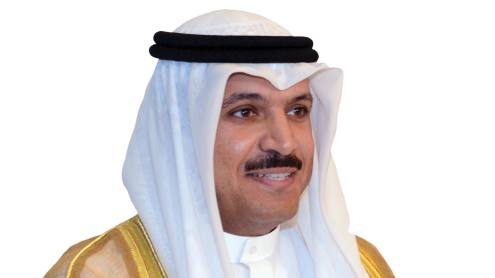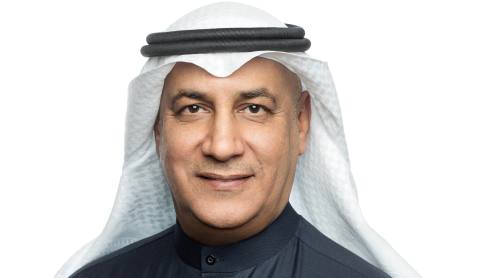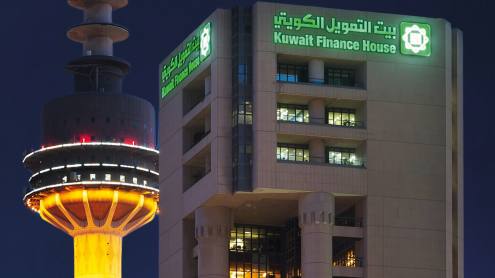Universal basic income (UBI) initiatives — where governments give regular, unconditional cash grants to segments of society — have been growing in popularity in recent years in countries including Kenya, Brazil, Iran and Finland. Interest in such schemes is now growing within the Arabian Gulf.
At first glance, unconditional cash grants may seem odd within the context of oil-rich nations such as Kuwait. Yet UBIs are increasingly being touted as a tool to improve the increasingly unequal and inefficient distribution of state oil revenues among Gulf citizens, with positive implications for the macroeconomy, the private sector and the environment.
“Kuwaiti oil revenues are distributed to Kuwaiti citizens in two ways, which are very inefficient,” says Shanta Devarajan, a professor of international development at Georgetown University and former chief economist at the World Bank.
The world isn’t going to be driving cars powered by combustion engines for another 100 years
“The first is through very highly paid jobs in the public sector, which is too big, not very productive and stifles the growth of the private sector. The second is through subsidies on fuel, which are inefficient and create incentives to over-consume fuel and electricity, which in turn causes pollution and excess carbon emissions.”
Public sector wages and energy and utility subsidies account for approximately 70% of annual government spending in Kuwait. Exorbitant salaries paid to government employees — who make up 80% of the country’s local population — are a powerful disincentive to Kuwaiti nationals to enter the private sector, which is dominated instead by largely south-east Asian expatriates.
Shrinking private sector
While the number of Kuwaiti citizens employed by the public sector grew by 4.5% annually between 2014–2019, those employed in the private sector shrank by 0.3% annually over the same period.
“The attraction of Kuwaitis to the public sector also creates a domestic brain-drain, where young, educated citizens are funnelled into underproductive careers compared to their true potential,” said Ali Al-Salim, a Kuwaiti investor and commentator, in a recent paper. “Aside from the economic impact, this also has significant wellbeing and social implications for the population.”
While Kuwait’s large oil wealth and relatively small population mean that fiscal reform is less urgent than Saudi Arabia, Oman and Bahrain, changing patterns of global oil consumption have made fiscal reform increasingly urgent.
“The world isn’t going to be driving cars powered by combustion engines for another 100 years,” Mr Al-Salim told The Banker.
“There’s an optimal window for making such a transition, and once that window closes you’re left with far fewer options and paths to go down, and less of a cushion in case mistakes happen.”
Reducing the wage gap
While the International Monetary Fund (IMF) and other international development agencies have argued for a reduction in subsidies and public sector salaries for decades, little progress has been made due to ongoing standoffs between the government and concerns over the impact of such reforms on Kuwaiti citizens. Given the sheer size of the wage gap between Kuwaitis and expatriates, reducing such disparities is a fraught matter.
“It’s not politically or morally defensible to just turn Kuwait into a free market economy where nationals don’t get any special support, and make them compete with low-cost labour from the global south and elsewhere,” says Steffen Hertog, associate professor in comparative politics at the London School of Economics.
“You have to strike a balance that enables citizens to become more competitive in the labour market while also receiving an income that enables them to enjoy some sort of middle-class life.”
In its most recent Article IV consultation with Kuwait in March 2020, the IMF urged the government to phase out generalised subsidies “in favour of targeted compensation schemes”.
The concept of such a scheme has generated some interest within the government. The Kuwait Public Policy Centre, part of the General Secretariat of the Supreme Council for Planning and Development, has supported research into the feasibility of a UBI in the country.
“The Gulf has so far been left out of discussions about UBI globally, even though they are in many ways an ideal laboratory for trying out such policies,” says Mr Hertog. “On the one hand, they have enough money to implement UBI in a reasonably generous way, while on the other hand the fiscal trends are so serious that they really need to do something about fiscal sustainability.”
Modelling by Mr Hertog suggests that removing subsidies on domestic energy consumption could generate a $200 monthly cash grant for each Kuwaiti adult employed in the public sector, $700 for those outside the public sector, and $230 for each child.
While the $200 grant for public sector employees would take care of higher utility costs with the removal of subsidies, the larger grants for those outside the public sector would help close the earnings gaps between those employed in the public and private sectors, providing greater incentives for Kuwaitis to start companies and seek employment outside the government.
“Decoupling government employment from wealth sharing would give citizens stronger incentives to seek skills that are relevant in the private sector,” says Mr Hertog. “The security of a basic income would give citizens autonomy to take entrepreneurial risks and make the most of their talents.”
Going further still
A gradual voluntary attrition of Kuwaiti public employment could see grants rise even further; a 10% reduction of the public payroll could finance an increase of $650 per month in UBI payments to adults.
Mr Al-Salim is urging the government to go further still, by privatising key industries such as energy, healthcare, utilities and education. In return for dialling back subsidies in these areas, shares in the newly privatised entities would be distributed on a pro bono and pro rata basis to Kuwaiti citizens.
“This wealth distribution would allay fears that a sale by the government would result in financial proceeds that could be misused by the state,” he says.
While making sense on paper, the passage of any significant financial reforms faces challenges from the country’s parliament that has long obstructed reforms impacting subsidies and even basic fiscal readjustment. The country has been unable to issue public debt for several years, with parliament refusing to pass a new debt law following the expiration of the previous law in 2017.
Decoupling government employment from wealth sharing would give citizens stronger incentives to seek skills that are relevant in the private sector
“The idea [of a UBI] needs to be explained very carefully, making the point that almost all Kuwaiti households are going to be net winners,” says Mr Hertog.
“It needs to be spelled out clearly, however, that it is a replacement for energy subsidies and public sector employment, and not something that’s just another layer on top. It needs to be constitutionally anchored, so that there’s no temptation to engage in new patronage policies on top of that.”
Aside from Kuwait’s specific legislative challenges, cash distributions in the Gulf more generally would introduce a significant change in the power relationships between governments and citizens — a factor that may give rulers pause.
“Governments across the Arabian Gulf use public sector employment as a form of patronage and control,” says Mr Devarajan. “By replacing that with universal cash transfers, it creates a different form of relationship. But in many ways it could increase the government’s legitimacy in the eyes of the citizenry if it stimulates employment and growth in the country.”














